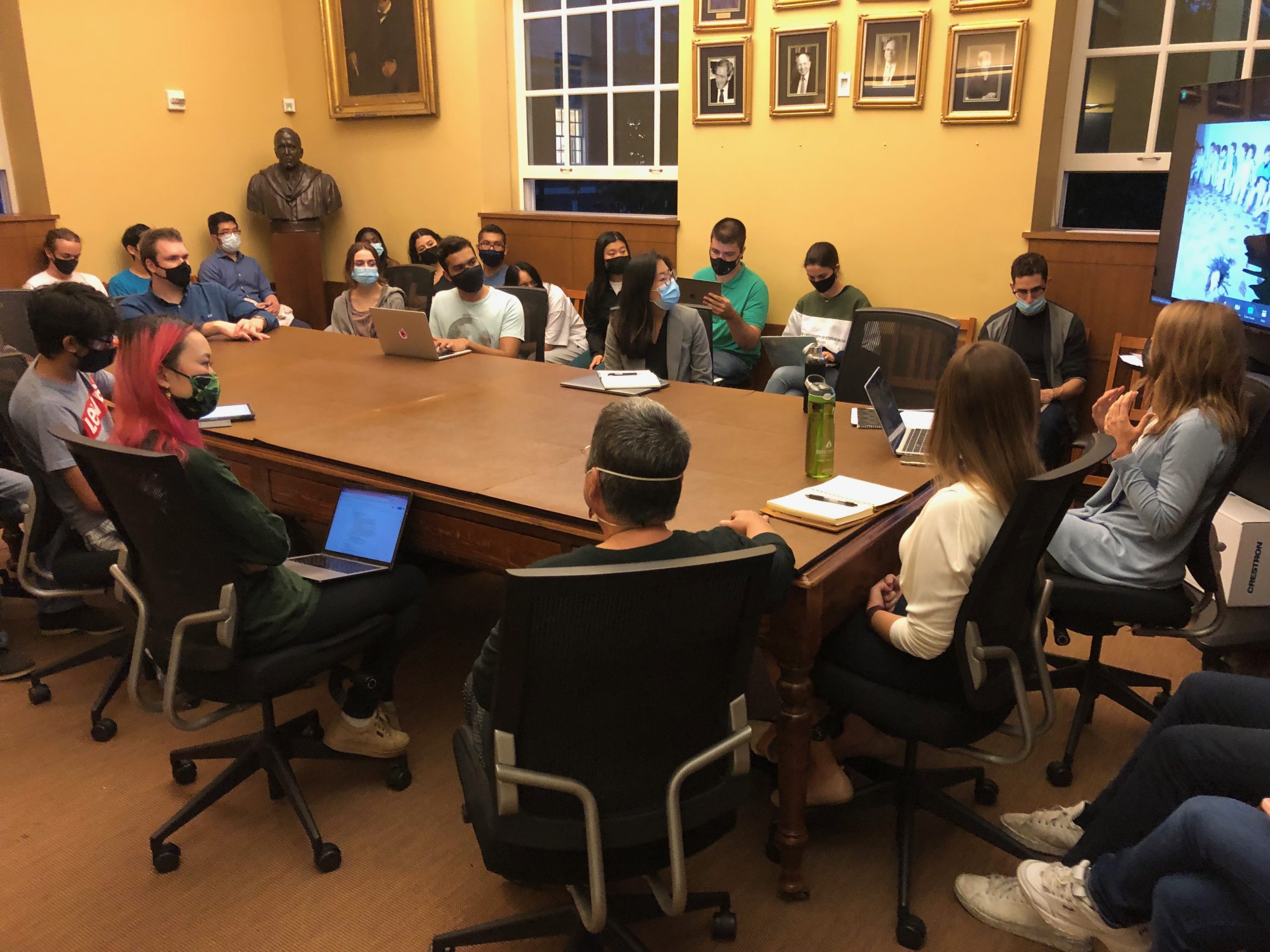By Chloe Hawkey
It’s no secret that Hopkins attracts a disproportionate number of scientifically and medically inclined students. Bucking the tide, undergraduate history majors have demonstrated an increasing dedication to the department, even as the department has renewed its commitment to undergraduate education. Recently, a group of motivated undergraduates founded the Undergraduate History Association (UHA), the department has been well-represented in the new menu of universal first-year seminars, and department faculty have been involved in the development of a new interdisciplinary major in moral economy.
Getting Involved in the Department
Hanan Abdellatif, a rising senior in the department, was one of the cofounders of the UHA. The current board, which also includes Jasmine Dong, Alex Kowalczyk, and Leland Held, wants to create “a space for undergrads to meet each other, form relationships with faculty, seek guidance from graduate students, and enjoy events about history.” She hopes that the UHA will “bring the department closer together overall.” The result has been a lively series of events dedicated to elucidating the historical roots of contemporary issues (racial democracy and the crisis in Ukraine, for instance). With John Marshall as their faculty mentor, the UHA plans to host two to three events of this kind in the coming term, in addition to more strictly social events.
Image: The UHA’s first event last year, a discussion of “Abortion: An Issue Through Time”
History majors, including Hanan, seek opportunities to participate in faculty-led research projects. The collaborative, research-based structure of history labs, represent one step in that direction. Another might be a new interdisciplinary major, Moral and Political Economy proposed by Professor Angus Burgin. If enacted, the major would train “students to think about economic problems in their social, cultural, moral, and political contexts.” They would not only gain a deeper understanding of the methodological norms of both history and economics, but they would also learn how to place contemporary issues in their historical contexts.
History First-year Seminars
Another new initiative is designed to help students find their way at Hopkins—and in history—before they even declare a major. First Year Seminars have existed in the past, but for the first time this year, they are required of every incoming freshman. Intended to foster community while expanding students’ awareness of potential areas of study, these seminars “ensure that every new student finds an intellectually exciting, accepting, and supportive home at Homewood.”
The History Department’s offerings include “the History of the Present,” “the Haitian Revolution,” “Voting with their Feet – a History of Self-Liberation,” “Black Baltimore Archives – from Frederick Douglass to Billie Holiday,” and “The Pleasures of the Imagination – British Culture in the 18th Century.” Many members of the history department including Professors Erin Rowe and Christopher Celenza, as well as graduate students Alan van den Arend and Laurence Bond have been involved in the implementation of this new initiative.
Research Opportunities
When students begin to take higher-level seminars, there are a variety of opportunities for significant research. Victoria Harms’ course on the global history of 1968 places Baltimore in international context, and places Hopkins students in a framework of community-based learning. Undergraduate students do original research in Baltimore’s archives in addition to connecting with students from Baltimore City Public Schools and local eyewitnesses who remember Baltimore’s response to the assassination of Martin Luther King Jr.
These conversations take place at the Reginald F. Lewis Museum of Maryland African American History & Culture, connecting students’ historical training to a broader set of approaches to the telling and sharing of history. Last year, undergraduate major Daphne Tang won the Baltimore City Historical Society’s Arnold Prize for Outstanding Essay on the city’s history: taking undergraduate research seriously has excellent results.
History Makes an Impact
All of these efforts have in common an effort to help students understand the value of studying history at a time when family and job-market pressures may discourage them from doing so. As Dr. Sarah Pearsall, the incoming Director of Undergraduate studies points out, all of these initiatives mean that “it’s an exciting time of change for undergraduates studying history.” And students are responding.
Sophomore major Sam Crankshaw writes, “I study history because it requires a broad spectrum of skills in both the humanities and the social sciences, but I think its real value is in the positive impact practicing history has on the mind.” For Hanan Abdellatif, the “tremendous value” she finds in her study of history lies in the way that it “teaches us perspective; it teaches us how to think critically; it teaches us how to think about and contextualize different points of view; it teaches us the importance of language and how we describe people and phenomena; it teaches us how to read and write well; and it teaches us about ourselves.”
All of those, she explains, are not only valuable in their own right; they also are “skills and tools that can be applied to so many different disciplines.” At their best, undergraduate courses help people to understand the world. Creating a stronger community around the content and methods of the history department’s undergraduate training offers the chance to expand and enrich our conversations within the department, and the department’s impact on the students it serves.
